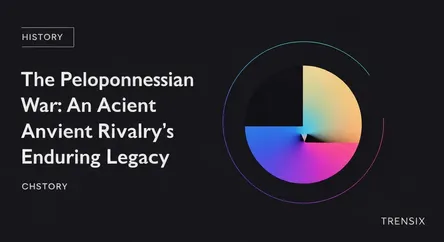History
The Peloponnesian War: An Ancient Rivalry's Enduring Legacy

A look into the epic conflict between Athens and Sparta that reshaped Ancient Greece and offers timeless lessons on power, politics, and warfare.
What is it?
The Peloponnesian War was a monumental conflict in ancient Greece fought from 431 to 404 BCE. The war pitted two of the era's most powerful city-states against each other: the democratic and naval-dominant Athens, leading the Delian League, against the oligarchic and land-based military power of Sparta, which led the Peloponnesian League. As recounted by the historian Thucydides, the primary cause was Sparta's fear of the growing power and influence of the Athenian Empire. The lengthy and brutal struggle involved nearly every Greek city-state and was fought across mainland Greece, Sicily, and Asia Minor.
Why is it trending?
Despite occurring over two millennia ago, the Peloponnesian War remains a subject of intense study and discussion. Its enduring relevance lies in the timeless themes it presents, such as the dynamics of power struggles, the clash of political ideologies (democracy versus oligarchy), and the dangers of unchecked ambition. Thucydides' historical account is considered a foundational text in the fields of international relations and political science, offering profound insights into the nature of war and human behavior. Consequently, world leaders and military strategists frequently study the conflict for lessons on diplomacy, warfare, and statecraft.
How does it affect people?
The war's immediate impact was devastating, marking the end of the Golden Age of Greece. It led to widespread economic hardship, famine, and significant population loss across the Greek world. Athens, once the strongest city-state, was defeated, its empire dismantled, and its democracy temporarily overthrown. Although Sparta emerged victorious, the conflict left all Greek city-states weakened and divided, paving the way for the eventual conquest by Philip II of Macedon. For people today, the war serves as a historical case study on the catastrophic consequences of prolonged conflict and political division.